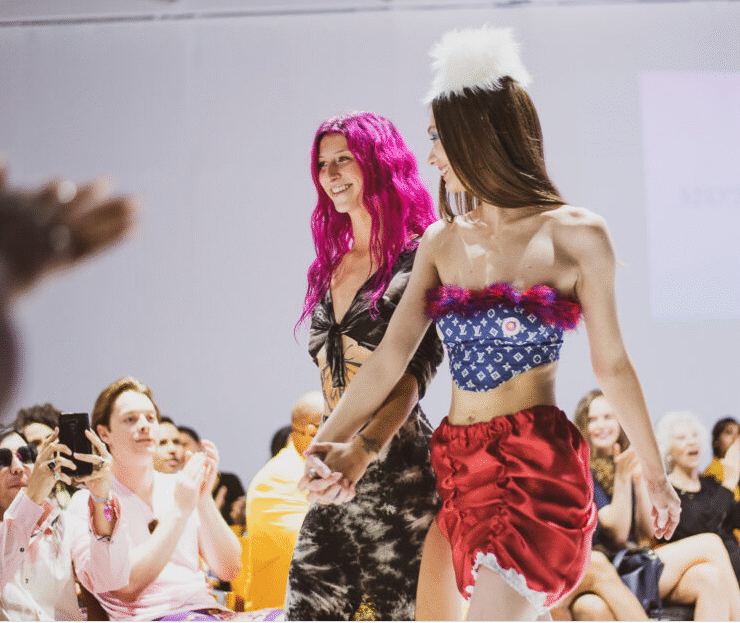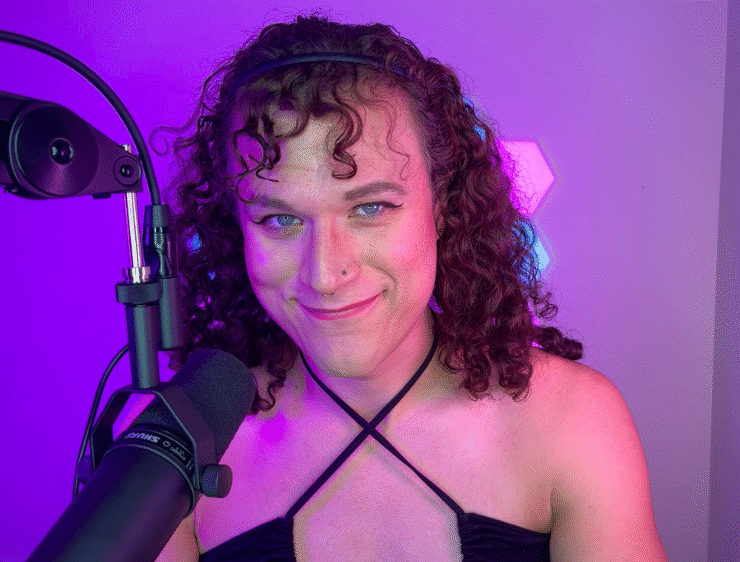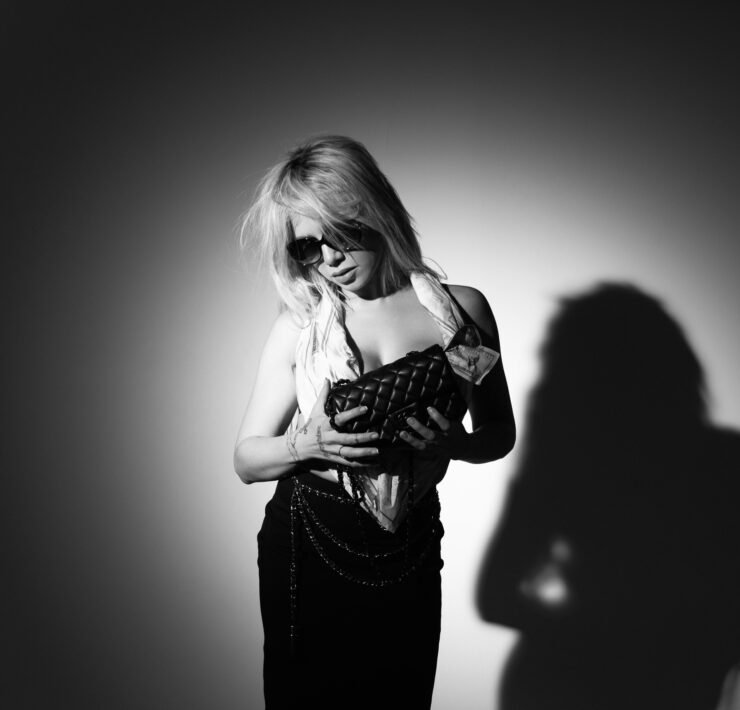Queer Girl Q&A with Eleni Stephanides

An LGBT bilingual writer, Eleni was born and raised in…
Eleni Stephanides breaks it down and answers your pressing queer questions.
Q: I’m a woman of color whose body type doesn’t fit the culturally prescribed ideal, and I sometimes feel out of place in wellness circles because of this. In my experience, there seems to be this particular (limited) aesthetic that dominates these spaces. Most of the influencers I see are thin, able-bodied, and white. How can I become more involved with wellness while minimizing my chances of coming up against microaggressions, unsolicited advice, and comments that leave me feeling worse about myself?
A: Being a woman in this country, while I, too, have dealt with my own share of appearance-based insecurities, I know that weight is a particularly common metric used for harshly judging women and their value.
Even though Lindy West’s blood tests, for instance, have always come back normal, still the steady tide of unsought advice from friends and strangers alike has continued unendingly (as she wrote about in her book Shrill). And in the medical appointments I interpret for Spanish-speaking patients, numerous times, a doctor has told a patient with chronic pain that if only she just lost weight, maybe then she’d be able to return to work.
Other times, the judgment is implied, coming across in valorization of thinness. (A line I once read in the book The Silent Patient really floored me: “Alicia, darling. I’ve missed you. You’re so thin, there’s nothing left of you. I’m so jealous.”)
The wellness community isn’t immune to the Western beauty standards that pervade our dominant culture. Much of it is, admittedly, still heavily populated by mainly clear-skinned, cis, white, thin, and able-bodied individuals.
The way writer Amira Rasool has described feeling unseen within these spaces reminded me of how I felt when I Googled “love” as a teenager only to unearth pretty much exclusively images of heterosexual couples.
“The dozens of photos that pop up are, truly, overwhelmingly white,” she writes. “White women doing yoga. White women smiling over green juice. White women posed serenely with plants. If you’re a white woman looking for advice about your hair, skin, mental health, lifestyle changes, or self-care, you have a seemingly endless stream of content at your fingertips.
“If you’re a young Black woman, there are far fewer opportunities to find the type of beautifully curated content on Instagram related to our hair type, skin type, or overall well-being. There are far fewer opportunities to feel seen in the wellness world.”
Our specific body insecurities may manifest differently, reader, but what I can say is that your feelings are valid and shared by many. It’s challenging out there for women—not because there’s anything wrong with us, but because of how our youth-obsessed, thin-valuing culture treats those who don’t fit the ideal. Try as we might, it’s hard not to internalize these widely circulated messages that tell us we are lesser.
I do think there’s a distinction between wellness itself and capitalist systems’ commodification of it. Wellness at its basest, in my view, is less about appearance than it is about truly inhabiting your best and healthiest self—for your sake and no one else’s.
What I’ve found has helped me is seeking spaces that appear driven by the latter mission. I pay less attention to the figures who seem to focus more on weight loss, the exterior, and finding “hacks” than on feeling good (overall) in my skin. I try to focus instead on those prioritizing internal experience over external results. They don’t promise quick fixes or use shame-based language. I don’t feel like they’re trying to hustle me. They’re more often gentle and holistic in their approach.
The figures I trust the most place greater emphasis on general, age-old tenets than on chasing the latest trends. For example, eat veggies is timeless wisdom I can confidently say won’t ever change. Fad diets might come and go, but truth in the benefit of supplanting processed foods with as many plants as possible will persist.
Lindy West is one body-positive role model whom I really respect and admire. Both her book and the TV show Shrill derived from it explore these topics in such a raw and spot-on way—So I definitely recommend checking out her work if you haven’t yet!
For POC influencers, look for Lauren Ash (founder of black Girl in Om, Deun Ivory, Zehra Allibhai and Eva Gomez. As Rasool has written, “The wellness influencers that do cater to Black women have served as a source of refuge and learning for Black women like me.”
Above all, I try to think of navigating the wellness scene as similar to buying a fresh bushel of lettuce. You might have to wash out some dirt and pesticides, but once you do, you’re left with something undeniably nourishing.

You can follow Eleni on Instagram @eleni_steph_writer.
Photo courtesy of Eleni Stephanides
What's Your Reaction?
An LGBT bilingual writer, Eleni was born and raised in the Bay Area. Her work has been published in Tiny Buddha, The Mighty, Thought Catalog, Elephant Journal, The Fix, The Mindful Word, and Uncomfortable Revolution among others. You can follow her on IG @eleni_steph_writer and read stories from her time as a rideshare driver at lyfttales.com










